Fouls
For something to be a foul, it must be:
- Done by a player,
- While the ball is in play,
- On the field of play, and
- Against a player on the other team
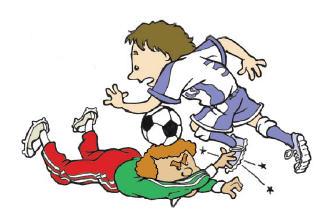
Some fouls are punished by restarting play with a direct free kick taken from where the foul occurred. If a direct free kick foul is committed by a defender within the defending team's penalty area, the punishment is a penalty kick for the other team. These six fouls result in a direct free kick if the referee decides it was done carelessly, recklessly, or using too much force:
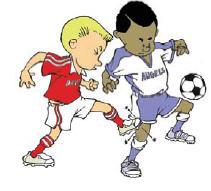
- Kicking or attempting to kick an opponent
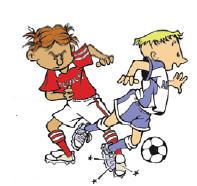
- Tripping or attempting to trip an opponent
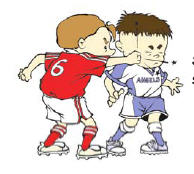
- Striking or attempting to strike an opponent

- Jumping at an opponent

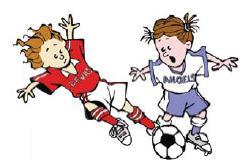
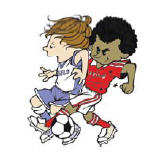
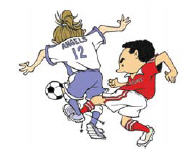
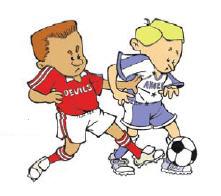
- Charging an opponent
- While tackling for the ball, making contact with the opponent before contacting the ball. (this includes tackling an opponent from behind with little or no concern for the safety of the opponent)
- Pushes an opponent

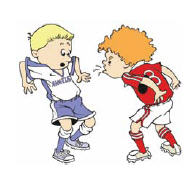
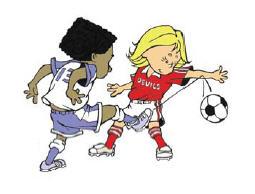
Other fouls are punished by restarting play with an indirect free kick from where the foul occurred. A goal cannot be scored directly from an indirect free kick (the ball must touch another player first). Indirect free kick offenses by the goalkeeper are:
- Holding the ball for more than six seconds
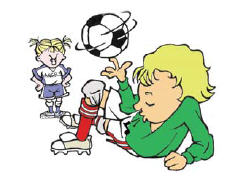
- Handling the ball a second time before the ball has been played
by:
- Anyone else (teammate or opponent)
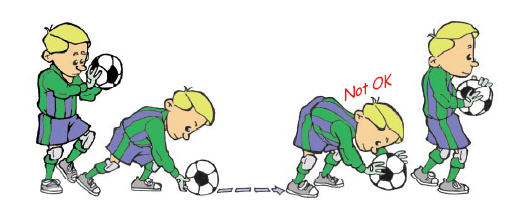
- Handling the ball directly after it has been deliberately kicked to the goalkeeper by a teammate or thrown in by a teammate to the goalkeeper
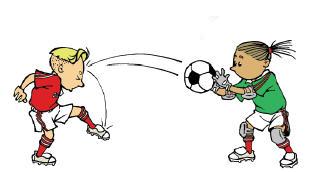 Trickery
TrickeryThis player could also be cautioned for unsporting behavior
NOT OK
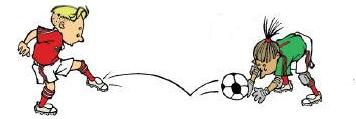 A
pass to the goalkeeper
A
pass to the goalkeeperNOT OK
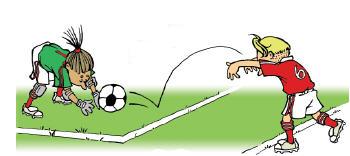
Throw-in to your goalkeeper
NOT OK
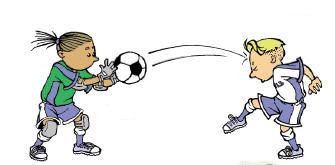
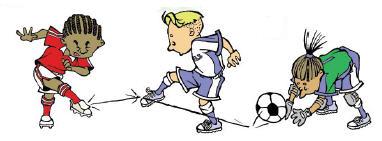 Both of these scenarios are OK
Both of these scenarios are OK- Playing dangerously
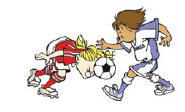
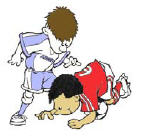
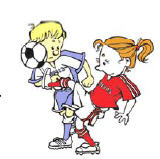
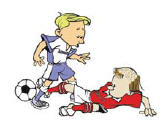
- Getting in the way of an opponent while not playing the ball (this used to be called "obstruction" and is now called impeding).
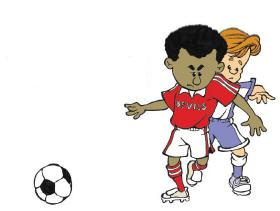
- Getting in the way of the opposing goalkeeper who is trying to put the ball into play
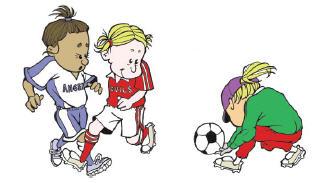
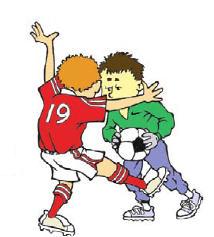
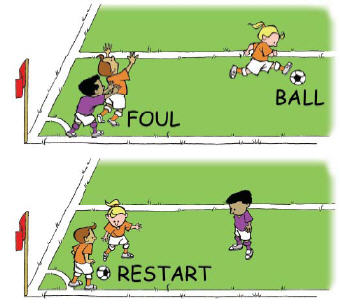
play is restarted with a free kick for the other team where the foul happened